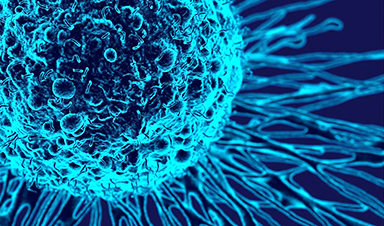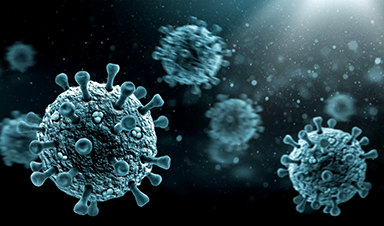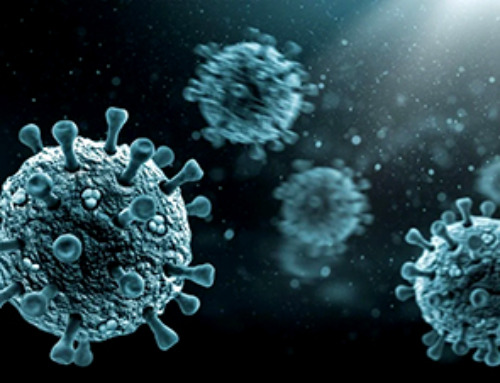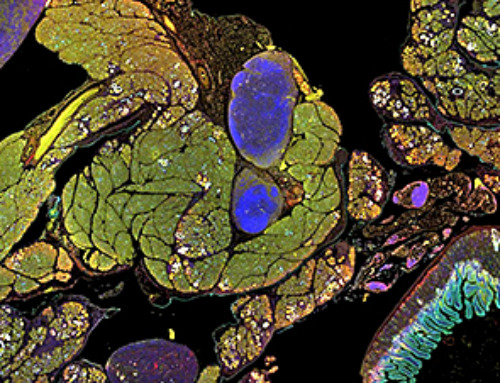Researchers have discovered that insulin resistance, typically linked with type 2 diabetes, is also present in cancer patients and can accelerate the spread of the disease.
In the 1920s, scientists found that the urine of cancer patients had a sweet odor. Initially, this left doctors perplexed, but they quickly realized that it was due to increased levels of blood sugar.
“This was one of the first things we learned about cancer patients,” says Associate Professor Lykke Sylow.
The sweet-smelling urine suggested that cancer affects the body’s blood sugar level. But how? A new study is ready to answer that question. Where previous studies have examined the connection between cancer and insulin, Lykke Sylow and colleagues’ new study is the first to compile the best research on the topic, and the answer seems to be clear:
And the body’s ability to respond to insulin is impaired in both cancer patients and people with type 2 diabetes.
Symptoms of type 2 diabetes such as fatigue and increased thirst and urination develop gradually and can therefore be hard to spot. And in cancer patients, insulin resistance can be even harder to identify as they already experience some of these symptoms, e.g. fatigue.
| About the study
The researchers conducted a meta-analysis of 15 studies of insulin sensitivity and cancer. This included 187 patients suffering from different types of cancer, including lung and colon cancer, and 154 control subjects. They only included studies applying the so-called gold standard, which is a very precise way of analyzing insulin sensitivity in humans. |
Insulin can cause cancer cells to multiply
Aside from the negative consequences of insulin resistance, the condition can also cause cancer cells to multiply.
“We know from cell studies, animal studies, and some human studies that insulin is a growth hormone and that it has the same effect on cancer cells. That is, a high level of insulin can make cancer cells grow faster,” says the second main author of the study, Joan Màrmol, and adds:
“Of course, this can be a huge problem for cancer patients.”
Furthermore, insulin resistance can influence the build-up of proteins in the muscles. That is, if the body fails to respond to insulin, it will lose muscle mass and strength, and that is a huge problem for a lot of cancer patients.
All in all, cancer and insulin resistance is a really bad combination.
Lykke Sylow hopes oncologists will begin to check patients’ blood sugar level – even when it appears to be normal because insulin resistance can be hard to spot as the body will simply compensate by producing more insulin.
“And if they do find that the patient suffers from insulin resistance, they need to start treating it. We are able to treat insulin resistance because we have in-depth knowledge of the condition – we are just used to associating it with type 2 diabetes.”
Aspects of the connection require more research, though.
“The next step is trying to determine who develops insulin resistance. Which cancer patients are at risk here? Do they have a particular type of cancer or specific risk factors? Or is it perhaps connected with the treatment?” Lykke Sylow says and adds:
“And once we have identified those at high risk of developing the condition, I hope to see more long-term studies of insulin resistance treatment and whether it has a positive effect on the patients.”
Reference: “Insulin resistance in patients with cancer: a systematic review and meta-analysis” by Joan M. Màrmol, Michala Carlsson, Steffen H. Raun, Mia K. Grand, Jonas Sørensen, Louise Lang Lehrskov, Erik A. Richter and Ole Norgaard, 12 April 2023, Acta Oncologica.
DOI: 10.1080/0284186X.2023.2197124
News
Global Nanomaterial Regulation: A Country-by-Country Comparison
Nanomaterials are materials with at least one dimension smaller than 100 nanometres (about 100,000 times thinner than a human hair). Because of their tiny size, they have unique properties that can be useful in [...]
Pandemic Potential: Scientists Discover 3 Hotspots of Deadly Emerging Disease in the US
Virginia Tech researchers discovered six new rodent carriers of hantavirus and identified U.S. hotspots, highlighting the virus’s adaptability and the impact of climate and ecology on its spread. Hantavirus recently drew public attention following reports [...]
Studies detail high rates of long COVID among healthcare, dental workers
Researchers have estimated approximately 8% of Americas have ever experienced long COVID, or lasting symptoms, following an acute COVID-19 infection. Now two recent international studies suggest that the percentage is much higher among healthcare workers [...]
Melting Arctic Ice May Unleash Ancient Deadly Diseases, Scientists Warn
Melting Arctic ice increases human and animal interactions, raising the risk of infectious disease spread. Researchers urge early intervention and surveillance. Climate change is opening new pathways for the spread of infectious diseases such [...]
Scientists May Have Found a Secret Weapon To Stop Pancreatic Cancer Before It Starts
Researchers at Cold Spring Harbor Laboratory have found that blocking the FGFR2 and EGFR genes can stop early-stage pancreatic cancer from progressing, offering a promising path toward prevention. Pancreatic cancer is expected to become [...]
Breakthrough Drug Restores Vision: Researchers Successfully Reverse Retinal Damage
Blocking the PROX1 protein allowed KAIST researchers to regenerate damaged retinas and restore vision in mice. Vision is one of the most important human senses, yet more than 300 million people around the world are at [...]
Differentiating cancerous and healthy cells through motion analysis
Researchers from Tokyo Metropolitan University have found that the motion of unlabeled cells can be used to tell whether they are cancerous or healthy. They observed malignant fibrosarcoma [...]
This Tiny Cellular Gate Could Be the Key to Curing Cancer – And Regrowing Hair
After more than five decades of mystery, scientists have finally unveiled the detailed structure and function of a long-theorized molecular machine in our mitochondria — the mitochondrial pyruvate carrier. This microscopic gatekeeper controls how [...]
Unlocking Vision’s Secrets: Researchers Reveal 3D Structure of Key Eye Protein
Researchers have uncovered the 3D structure of RBP3, a key protein in vision, revealing how it transports retinoids and fatty acids and how its dysfunction may lead to retinal diseases. Proteins play a critical [...]
5 Key Facts About Nanoplastics and How They Affect the Human Body
Nanoplastics are typically defined as plastic particles smaller than 1000 nanometers. These particles are increasingly being detected in human tissues: they can bypass biological barriers, accumulate in organs, and may influence health in ways [...]
Measles Is Back: Doctors Warn of Dangerous Surge Across the U.S.
Parents are encouraged to contact their pediatrician if their child has been exposed to measles or is showing symptoms. Pediatric infectious disease experts are emphasizing the critical importance of measles vaccination, as the highly [...]
AI at the Speed of Light: How Silicon Photonics Are Reinventing Hardware
A cutting-edge AI acceleration platform powered by light rather than electricity could revolutionize how AI is trained and deployed. Using photonic integrated circuits made from advanced III-V semiconductors, researchers have developed a system that vastly [...]
A Grain of Brain, 523 Million Synapses, Most Complicated Neuroscience Experiment Ever Attempted
A team of over 150 scientists has achieved what once seemed impossible: a complete wiring and activity map of a tiny section of a mammalian brain. This feat, part of the MICrONS Project, rivals [...]
The Secret “Radar” Bacteria Use To Outsmart Their Enemies
A chemical radar allows bacteria to sense and eliminate predators. Investigating how microorganisms communicate deepens our understanding of the complex ecological interactions that shape our environment is an area of key focus for the [...]
Psychologists explore ethical issues associated with human-AI relationships
It's becoming increasingly commonplace for people to develop intimate, long-term relationships with artificial intelligence (AI) technologies. At their extreme, people have "married" their AI companions in non-legally binding ceremonies, and at least two people [...]
When You Lose Weight, Where Does It Actually Go?
Most health professionals lack a clear understanding of how body fat is lost, often subscribing to misconceptions like fat converting to energy or muscle. The truth is, fat is actually broken down into carbon [...]





















